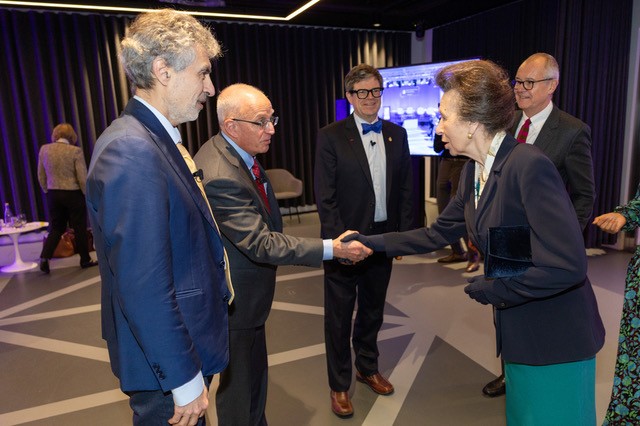The 2025 Queen Elizabeth Prize for Engineering (QEPrize) has been awarded to seven engineers for their groundbreaking contributions to Modern Machine Learning, a technology that has revolutionised the field of artificial intelligence (AI). The laureates—Yoshua Bengio, Geoffrey Hinton, John Hopfield, Yann LeCun, Jensen Huang, Bill Dally, and Fei-Fei Li—have been recognised for their pivotal work in advancing the core pillars of machine learning: algorithms, hardware, and data.
Modern Machine Learning, which allows systems to learn from vast amounts of data, has transformed the way AI operates, making it capable of improving over time through continuous learning. This year’s winners have made significant strides in shaping the algorithms, hardware, and datasets that power AI systems, leading to a rapid expansion of AI applications across industries.
The laureates have been at the forefront of developing artificial neural networks, the dominant model in machine learning. Bengio, Hinton, Hopfield, and LeCun have all been instrumental in developing these networks, which allow machines to process and learn from data in ways once thought impossible. Their work has formed the foundation for many AI systems we rely on today.
Meanwhile, Huang and Dally have contributed to the development of high-performance hardware, particularly Graphics Processing Units (GPUs). Their work has been integral to scaling machine learning models, making them capable of supporting today’s advanced AI applications, including in areas such as healthcare, self-driving cars, and personalised recommendations.
Fei-Fei Li’s creation of ImageNet, a vast image database, has also been instrumental in AI’s development. The database, containing millions of labelled images, has provided essential training data for computer vision algorithms and has become a benchmark for AI advancements in image recognition.
The winners’ contributions have helped shape the world’s AI systems, which now underpin many transformative technologies. From revolutionising healthcare diagnostics to enabling autonomous vehicles and enhancing personalised online services, their work continues to redefine how we live and work.
Speaking about the honour, Dr Bill Dally, one of the recipients, said, “I am honoured to receive the Queen Elizabeth Prize for Engineering alongside esteemed pioneers in AI. Our work on GPUs has enabled machine learning to reach super-human performance levels, enhancing many aspects of human experience.”
Professor Geoffrey Hinton expressed his gratitude, saying, “This award highlights the role engineering plays in advancing society. I hope it will inspire future innovators to tackle pressing global challenges, including the safe development of AI.”
Fei-Fei Li, another recipient, added, “This recognition underscores the importance of keeping human values at the centre of AI development. The possibilities for AI to improve lives across sectors, from health to education, are immense.”
The Queen Elizabeth Prize for Engineering recognises engineers whose work has had a significant impact on society. This year’s winners, who will share a £500,000 prize, were honoured at a reception at the Science Museum, London, attended by HRH The Princess Royal.
Lord Vallance, Chair of the Queen Elizabeth Prize for Engineering Foundation, described the winners as exemplars of the power of collaboration, innovation, and the interdisciplinary approach that has led to the advancement of modern machine learning.
To learn more about the 2025 laureates and their groundbreaking work, visit www.qeprize.org/winners.


